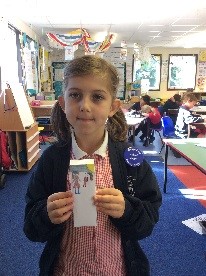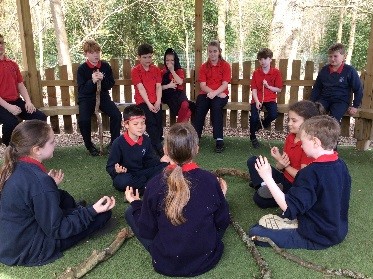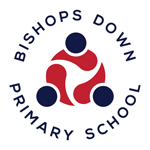Religious Education
 The principal aim of Religious Education at Bishops Down is to engage pupils in systematic enquiry into significant human questions which religion and worldviews address, so that children can develop the understanding and skills needed to appreciate and appraise varied responses to these questions, as well as develop responses of their own.
The principal aim of Religious Education at Bishops Down is to engage pupils in systematic enquiry into significant human questions which religion and worldviews address, so that children can develop the understanding and skills needed to appreciate and appraise varied responses to these questions, as well as develop responses of their own.
As a non-denominational primary school we welcome families from both religious and non-religious backgrounds and encourage children to acquire reasoned and positive attitudes and beliefs which include a respect for and understanding of other peoples’ spiritual, religious, moral and cultural ways of life.
We help the children to appreciate the world in which they live and the interdependence of individuals, groups and nations. We draw upon pupils’ beliefs, cultures and backgrounds to achieve these outcomes.
In additional to timetabled lessons, classes celebrate special days throughout the year, linked to different major world religions.
We follow the Kent agreed SACRE syllabus which ensures that all pupils:
- Develop knowledge and understanding of all religions and how they impact on individuals within our community and the wider world.
- Develop respect for all traditions, beliefs and practices.
- Develop skills and attitudes which support their own personal, moral, social and cultural development.
In accordance with Government guidelines this curriculum reflects ‘that the religious traditions in Great Britain are in the main Christian whilst taking account of the teaching and practices of other principal religions represented in Great Britain.’
The teaching uses key questions to develop pupils’ learning, they are grouped under 3 headings:
Believing (questions about meaning, purpose and truth based on religious beliefs and teachings)
Expressing (questions about identity and diversity based on religious form of expression)
Living (questions about religious values and commitment based on religious practices and ways of living)
In EYFS the questions are focused around their community and include the following  examples:
examples:
- Which stories are special and why?
- Which people are special and why?
- What places are special and why?
- What times are special and why?
In KS1 the children learn about Islam and Judaism as well as Christianity, the key questions include:
- What can we learn from sacred books?
- What does it mean to belong to a faith community?
- How should we care for others and the world?
The KS2 curriculum covers all the above religions and also includes Hinduism as well as (for UKS2) introducing the philosophy of humanists. Key questions include:
- What do different people believe about God?
- Why are festivals important?
- What do religions say to us when life gets hard?
- Is it better to express beliefs in art or charity?
To answer these key questions, the children will engage in discussion alongside reading and writing activities as well as having the opportunity to be creative through drama, art and music. Children will also be able to extend their learning through research using books and/or the internet and by talking to representatives of local faith communities either in school or during visits to their places of worship.

